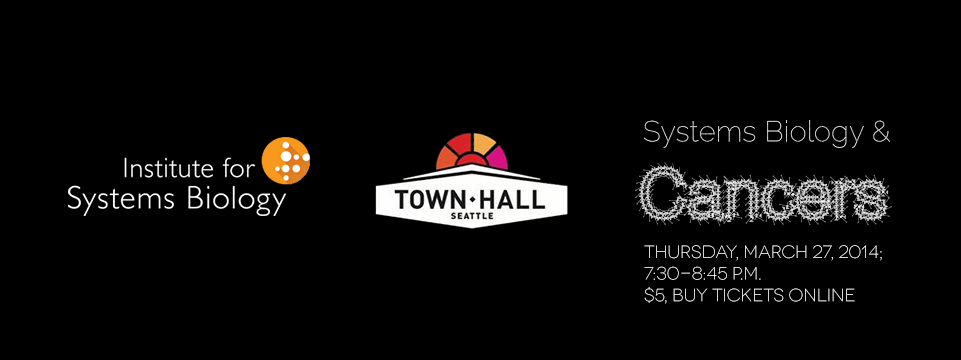ISB at Town Hall Seattle on March 27
 isbscience.org/news/2014/02/14/isb-at-town-hall-seattle-on-march-27/
isbscience.org/news/2014/02/14/isb-at-town-hall-seattle-on-march-27/
As an extension of ISB's 13th Annual International Systems Biology Symposium, we are collaborating with Town Hall Seattle to hold a panel discussion. Panelists include ISB president, Dr. Lee Hood; Dr. Tony Blau, of UW's Division of Hematology, Department of Medicine; Dr. Peter Nelson, prostate cancer researcher and oncologist at Fred Hutchinson Cancer Research Center; and moderator Dr. Eric Holland, Senior VP and Director of the Human Biology Division at Fred Hutchinson Cancer Research Center.
Systems Biology and Cancers: Big Data to Personalized Treatment
Date: Thursday, March 27, 2014; 7:30-8:45 p.m.
Location: Downstairs at Town Hall (1119 8th Ave.); enter on Seneca Street
Cost: $5
Buy Tickets Online





